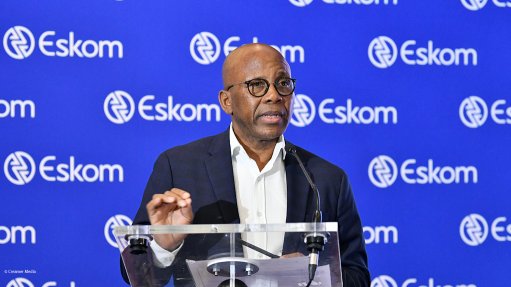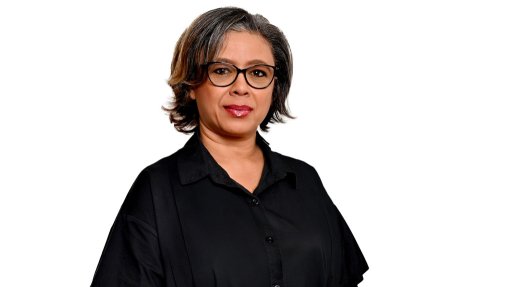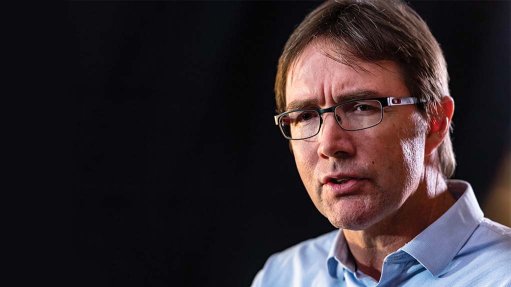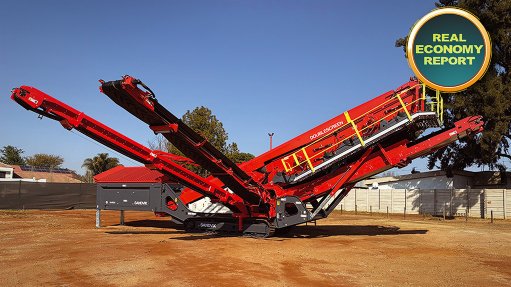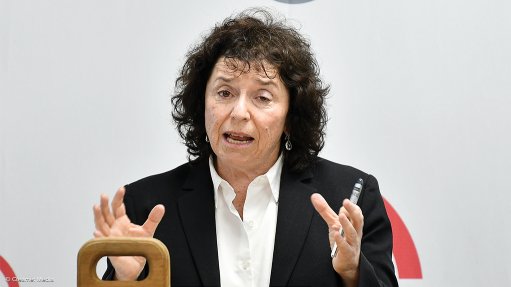Africa’s energy transition must be balanced – ISS
Africa’s energy transition must strike a “delicate” balance, with the continent needing to find a balance between addressing its energy needs and mitigating carbon emissions, Institute for Security Studies (ISS) African Futures and Innovation senior researcher Alize le Roux said, speaking during the organisation’s ‘Africa’s energy transition: The need for gas, nuclear and renewables’ webinar, on August 23.
She said that the continent must strive for a low-emission pathway from fossil fuels, in its own and global interests.
While the continent is still a small player in global carbon emissions, emitting less than 5%, this will increase to 11% in 2050 and 16% in 2026, according to ISS research, which underscores the urgency for cleaner energy, Le Roux averred.
Globally, she said, research had highlighted the need for the world to phase out coal as an energy source by 2040, and rapidly reduce oil and gas dependency to sufficiently reduce carbon emissions to mitigate the climate-change crisis.
However, with many African countries still reliant on fossil fuels for energy consumption and export, this goal presented economic challenges, she warned.
Four carbon-tax scenarios have been posited to illustrate the potential for significant emission reductions, Le Roux pointed out; however, only if this is undertaken at a global level.
She said that, of these, the differentiated pay tax scenario held the biggest potential, as it would entail a global response, while ensuring that wealthier nations, which were taxed more, were using the tax generated to help support developing nations in their green energy transition.
Additional tools would also be required in conjunction with this, including carbon sequestration, better land use management systems, and accelerated energy transitions, Le Roux stressed.
She indicated that the energy gap between what Africa needed and what it would be producing would persist, which meant that the recommendations alluded to for managing climate change would have a significant implication for countries on the continent, and could not currently be fully adopted by the continent.
ISS has suggested using gas as a transition fuel for filling the gap and allowing Africa the space it needed to grow.
Moreover, while strides have been made in renewable-energy solutions and adoption on the continent, Le Roux said that more needed to be done on an unprecedented scale and at speed.
Also, several promising solutions were still some time away from being mainstreamed.
Le Roux stressed that, in addition to giving Africa space to allow a slow transition from fossil fuels, considerable funding was also required.
Other speakers reiterated this point, noting that the amount of climate adaptation, and loss and damage funding that Africa received currently was insufficient, only constituting a small percentage of what was available, and was disproportionate to the resources the continent provided.
They also stressed that each country was different, and would have its own development needs and national policies, and funding should be structured accordingly.
Comments
Press Office
Announcements
What's On
Subscribe to improve your user experience...
Option 1 (equivalent of R125 a month):
Receive a weekly copy of Creamer Media's Engineering News & Mining Weekly magazine
(print copy for those in South Africa and e-magazine for those outside of South Africa)
Receive daily email newsletters
Access to full search results
Access archive of magazine back copies
Access to Projects in Progress
Access to ONE Research Report of your choice in PDF format
Option 2 (equivalent of R375 a month):
All benefits from Option 1
PLUS
Access to Creamer Media's Research Channel Africa for ALL Research Reports, in PDF format, on various industrial and mining sectors
including Electricity; Water; Energy Transition; Hydrogen; Roads, Rail and Ports; Coal; Gold; Platinum; Battery Metals; etc.
Already a subscriber?
Forgotten your password?
Receive weekly copy of Creamer Media's Engineering News & Mining Weekly magazine (print copy for those in South Africa and e-magazine for those outside of South Africa)
➕
Recieve daily email newsletters
➕
Access to full search results
➕
Access archive of magazine back copies
➕
Access to Projects in Progress
➕
Access to ONE Research Report of your choice in PDF format
RESEARCH CHANNEL AFRICA
R4500 (equivalent of R375 a month)
SUBSCRIBEAll benefits from Option 1
➕
Access to Creamer Media's Research Channel Africa for ALL Research Reports on various industrial and mining sectors, in PDF format, including on:
Electricity
➕
Water
➕
Energy Transition
➕
Hydrogen
➕
Roads, Rail and Ports
➕
Coal
➕
Gold
➕
Platinum
➕
Battery Metals
➕
etc.
Receive all benefits from Option 1 or Option 2 delivered to numerous people at your company
➕
Multiple User names and Passwords for simultaneous log-ins
➕
Intranet integration access to all in your organisation








